Elvis Presley Kissed Me
Elvis Presley—that’s all we had been talking about for weeks at the electric store where I work as a typist. Not only was Elvis in my country, but he was in Bad Homburg, a few miles from my hometown Frankfurt.
I wasn’t as crazy about Elvis as my girl friends were. I liked him fairly much. In fact, I had six of his records, but he was not my favorite singer. I much preferred Frank Sinatra better. I became more enthusiastic about Elvis after I saw his movie, “Love Me Tender.” His voice was sweet, and his is a shy boyish smile, and he was so sincere.
AUDIO BOOK
One day I was coming home from work to our apartment in Frankfurt, where I live with my mother, my two brothers, Rolf and Pieter, and my grandparents. I met Bruno Waske in the hallway.
Bruno is a photographer for a German weekly picture magazine, and he lives on the fourth Hour in our building. I have known him almost all my life. His son, who is just on my age, seventeen, is a very good friend of mine.
“How would you like to come with me to Bad Homburg tomorrow?” Bruno asked me. “It’s Sunday, and you don’t have to work. I am going to take some pictures of Elvis Presley at his hotel, and you could ask him for his autograph.”
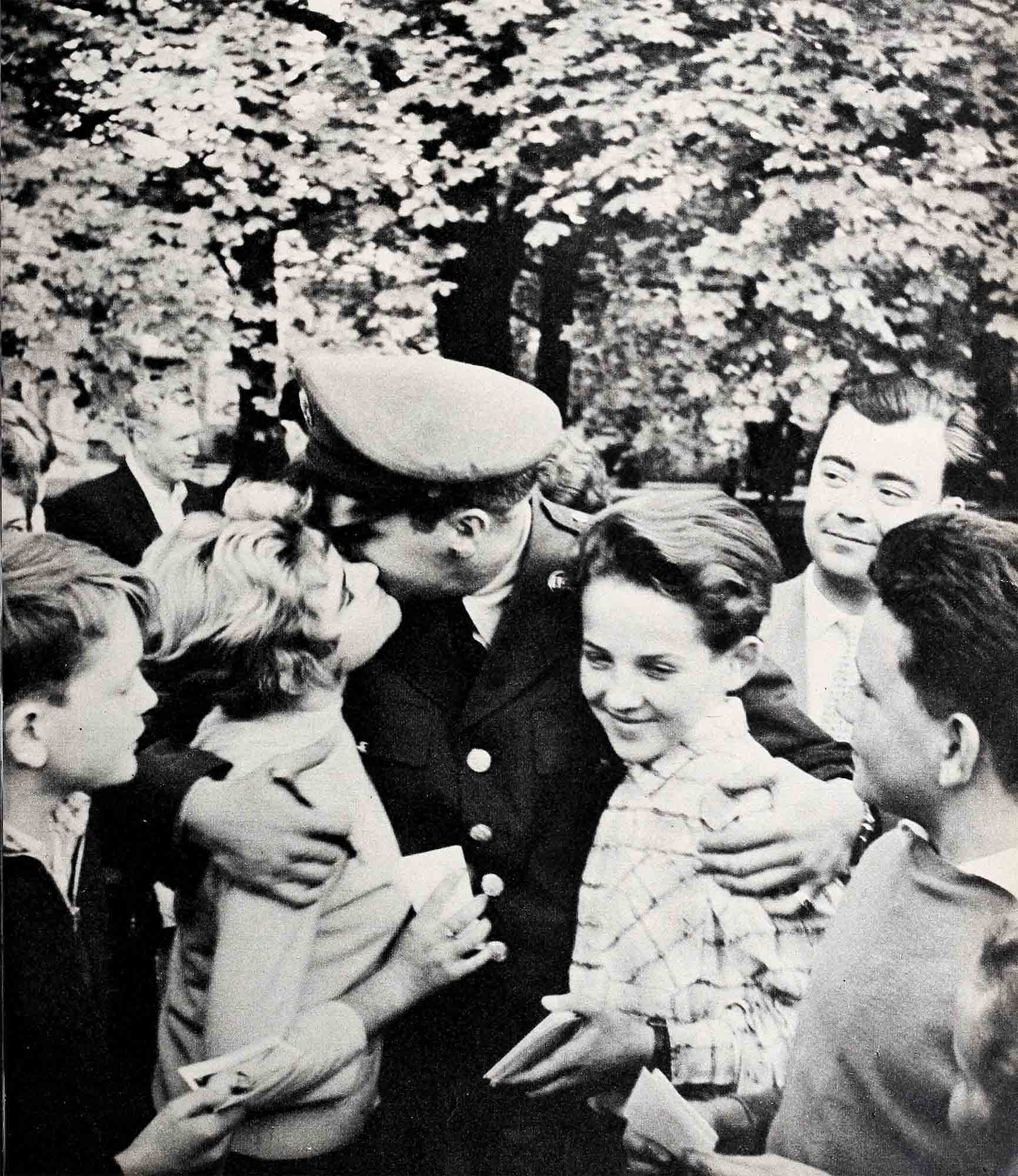
“How wonderful.” I Elvis Presley in person! How my friends will all be jealous!”
I couldn’t sleep all the night thinking about the next day. I had never seen anyone famous, and Elvis was something super-special. All the girls in Germany were mad for him. His autograph was even selling on the black market. That’s how popular he is! What a story I would have to tell Inga, my best girl friend, and everyone else at the office Monday morning.
Bruno came to pick me up right after lunch. I hadn’t eaten a bite myself, I was so excited. I wore a fluffy white sweater I had bought especially for the day, and a new skirt my mother had made me.
All the way to Bad Homburg, I chattered at Bruno. But I was nervous. It did not seem real that I was about to see Elvis Presley.
Then I began to worry. After all, how was Bruno so sure I could even get near to Elvis to ask for his autograph? There would be many people crowding around his hotel. Maybe we would not see him.
“Never mind, you will see him,” Bruno said. “I have to take some pictures of him, and I have never missed an assignment yet.”
At Elvis’ hotel in Bad Homburg, we learned that Elvis would be taking a walk with his father in a park nearby at 4:30. There were a lot of photographers around, who were waiting, like Bruno, for him to come out.
My eyes were glued on the door of the Ritter’s Park Hotel. Suddenly I grabbed Bruno’s arm. “There he is,” I screamed, and I dashed across the street.
Elvis was followed by several men. I noticed them without seeing them. I saw only Elvis. He looked very handsome in his American uniform.
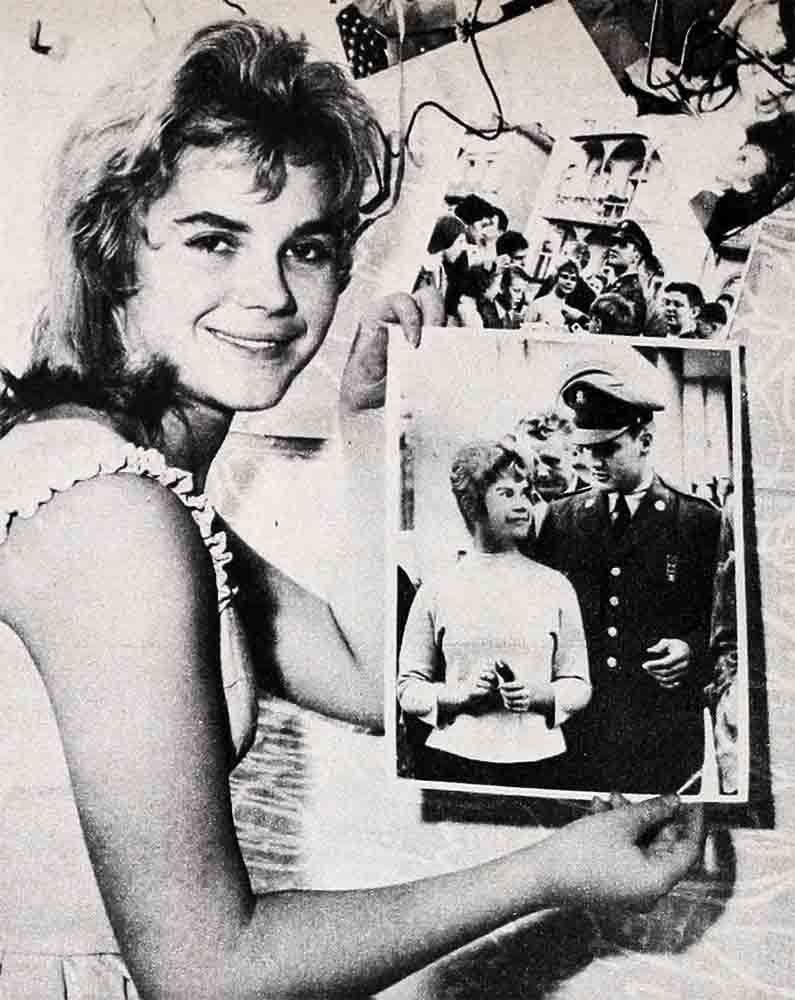
I squeezed through the photographers, who were beginning to crowd around him. I held Bruno’s calling card up to him. It was all I had. “Please, may I have your autograph?” I asked him in German.
He smiled, and I thought I would melt. “Wie Geht Es Dir?” (How do you do?) he said to me, also in German, and he looked straight into my eyes, as he signed his name.
“How about a picture with the girl, Elvis?” all the photographers began to shout. Elvis smiled again and looked at me questioningly. I could only nod my head, I was unable to speak.
He took my hand in his, right there in front of everyone, and we began to walk towards the park. He asked me my name, and he repeated it after me. “Margrit,” he said softly.
We did not say much. It was difficult, as I do not have much English. Oh, how sorry I was that I did not speak his language. For the last two months, I had been going to night school twice a week to learn English. That was because I hoped to go to America one day. I understand a little but I speak only a few words. But I found it easier to understand Elvis than even my English teacher. Elvis spoke English slowly, so softly, spacing the words carefully to make it more easy for me.
“Autogramm . . . autograph. It is the first German word I have learned,” Elvis said. We were still walking, hand in hand, followed by hundreds of people. I did not feel ill at ease. I felt as if I had known him always.
“How about a little kiss?” one of the photographers asked.
I blushed a deep crimson, and Elvis looked embarrassed too. Then he laughed. He tosses his head like a little boy when he laughs. He looked at me for permission, and I nodded my head.
He took me very gently into his arms and kissed me lightly on the cheek. “Again, again,” cried the photographers. Once again he kissed me, holding me closer.
This time I closed my eyes. No more photographers milling about. No more crowds watching us. No cameras clicking, no people pushing. Just Elvis . . . hugging me, his lips warm against my face—kissing me again and again and again. (Later Bruno told me there had been sixteen kisses.)
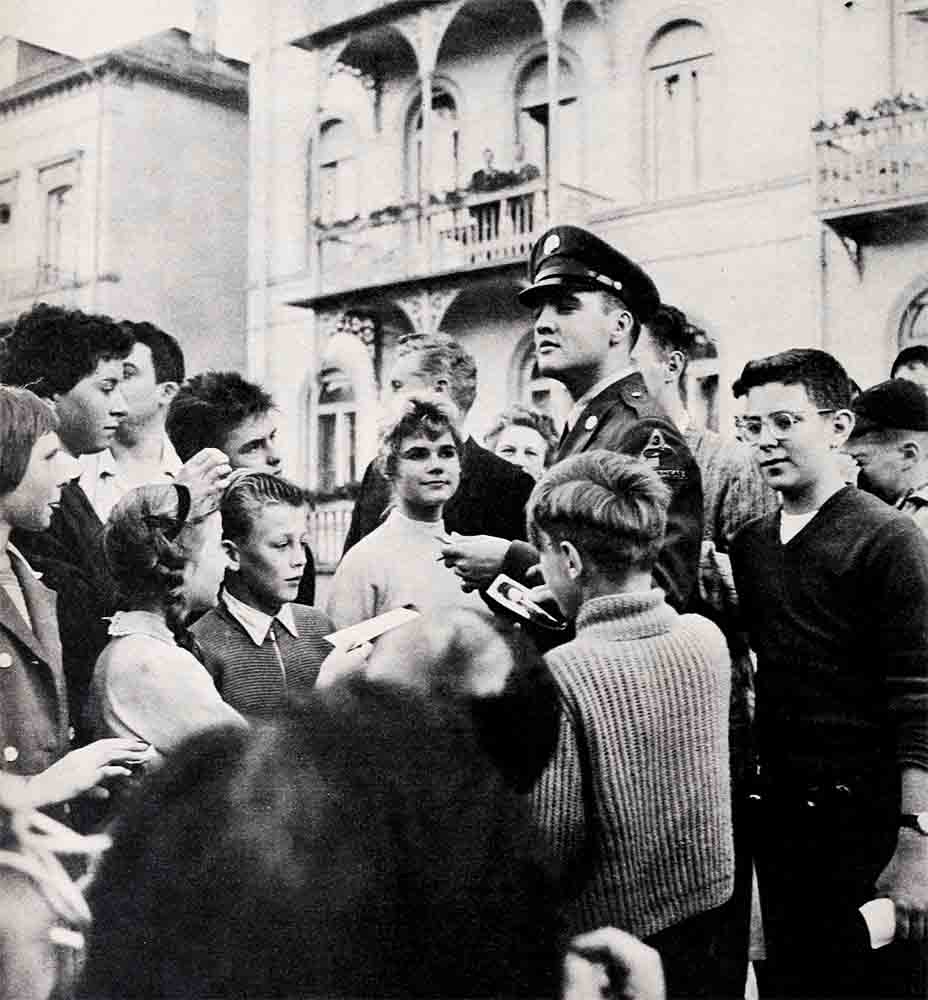
Finally, I opened my eyes. Elvis put his hand gently against my cheek. He smiled at me and said, “Thanks a lot.”
Then he took my hand, and we walked back to the hotel. Elvis bent down and kissed me on the cheek. Then it was all over. He waved and went into the hotel.
The crowds of people began to cheer and scream, “Elvis, Elvis.” They were staring up at the second story balcony. I did too.
Elvis was standing on the balcony. He looked straight at me and blew me a kiss. I blew one back. Then he disappeared.
The people began to leave, but I stood in a daze. I kept looking and looking up at the balcony. Bruno finally brought me back to the real world.
“Do you know what just happened?” Bruno cried.
“Elvis kissed me,” I answered.
“Not that.” Bruno said, “something else. I was just talking to Lamar Fikes, Elvis Presley’s secretary, and he said that Elvis wanted your address and phone number. What do you think of that?”
I could not answer. I just gulped and looked up at the balcony.
For the next several days, I did not think of anything except Elvis. I hoped and hoped he would call me, but deep in my heart I did not think he would.
Two weeks went by and there was no call from Elvis. I gave up hope. But just the same I kept looking in the paper for news of him. I read that he had moved with his father and grandmother to a hotel in Bad Nauheim. Then they changed to a smaller hotel, so that his grandmother could cook for him. I read also he was working very hard in the army.
Then I stopped reading the paper. Forget about him, I told myself. But if you have been kissed sixteen times by Elvis Presley it is not easy to forget . . .
One Sunday, three weeks after I had met Elvis, I came home from a movie where I had gone with my girl friend, Inga. I found my mother in a terrible state of excitement.
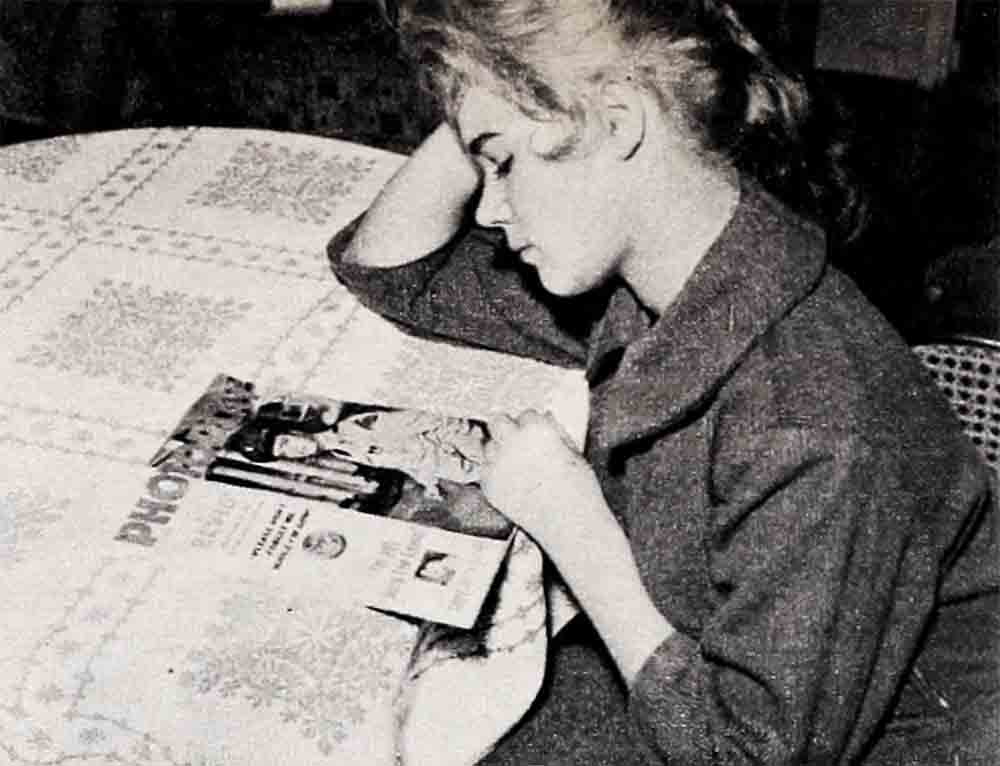
“He has called,” she cried, before I had closed the door.
“Who?” I asked, and then I guessed before she could stutter out the name, “Mr. Presley.”
“About twenty minutes before. A man’s voice asked for you in English,” my mother explained. Fortunately, a friend of my mother’s, who understands English, was visiting. She took the call. It was Mr. Fikes, and he wanted to talk to me about making a date with Elvis. He said he would call later.
At that moment the phone rang again. It was Elvis’ secretary. I asked my mother’s friend, the one who understands English, to take the message. Mr. Fikes said that Elvis was too busy in the army to call himself but he wanted to know if I was free on the following Tuesday to go out with him.
“Yes,” I said, taking the phone from my mother’s friend, “Yes.” “We’ll pick you up at 6:30,” Mr. Fikes said, and somehow I understood every word.
Yet I could not believe it was true. “Maybe it is a joke,” I said to my mother “Maybe one of Elvis’ friends, another soldier, is playing a joke on me.”
Joke or no joke, I was certainly going to be ready at 6:30 on Tuesday. I do not know how I passed those two days. I could not keep my mind on my job, and my thoughts would stray off to Elvis when I was taking dictation. I did not say anything at the office—not even to Inga. I did not want to be kidded in case it was a joke.
On Tuesday I took a taxi home from work—something I never do—so I would have much time to dress. Also, I missed my twice-a-week English lesson, a thing I had never done before. But right there and then I said to myself that I would make up for it, that I would take lessons three times a week from then on. And if Elvis liked me, I would need the extra lessons . . . so that I could really talk to him.
For my first date with Elvis I chose a red plaid woolen jumper, which I wore with a white peasant blouse. My mother had made them. She makes all my clothes. I put on my highest heels. I am very tiny, not even five feet, and Elvis is so high.
Then I sat down on my chair to wait. At 6:15 the phone rang. My heart skipped a beat. Elvis is breaking the date, I thought. It was Mr. Fikes, who said that Elvis had been delayed coming back to camp. It was a dark, foggy night, and he explained—through my mother’s friend— that because of the delay he himself would come in a car to fetch me and take me to meet Elvis.
At 7 o’clock sharp, Mr. Fikes rang at my door. I introduced him to my mother. He told her that Elvis was sorry he could not meet her himself, but that duty was duty. He explained that I would meet Elvis’ father and grandmother, and then maybe we would go to a movie.
My mother told him I had to be home at 11 o’clock at the latest. Mr. Fikes agreed. Then my mother kissed me, and I went out to the taxi.
In the cab I said hardly anything. I had never had a real date before and wasn’t sure how to act. From time to time I glanced at the illustrated English-German dictionary I had brought with me. As we came more near to Bad Nauheim, I got more nervous, and kept asking myself, “Will he like me?”
Elvis was waiting in the hall of the hotel for us when we arrived. He had on a dark suit and a heavy white sweater. “Hi,” he said, smiling. He shook hands in a friendly fashion. He took my arm and led me upstairs, where I met his father. His father is very good looking. “My grandma isn’t feeling too well tonight,” Elvis said. “You’ll meet her another time.”
Soon I was not nervous anymore. Elvis and his father were so friendly and natural. I understood the general sense of almost everything they said. Whenever I was puzzled about a word, I looked in my dictionary. Elvis sat near me and helped me find the word. “You will teach me German and I will teach you English,” he said.
We drank Cokes and Elvis beat time with his foot, even though no music was playing. He asked me if I wanted to see a movie. “Do you want to see ‘Tamango’?” he asked me. “It’s in German. That’s better for you.”
I was touched by his thoughtfulness in suggesting a German language one for my sake.
We came into the movie during the middle. Elvis looked relieved. He would have been mobbed if we had been seen. He picked out two seats in a corner of the movie house.
He took my hand, and I felt all warm and glowing inside. Whenever there were love scenes between Curt Jurgens and Dorothy Dandridge in the movie, he pressed my hand more tightly.
We left just before the movie ended so we could avoid the crowd. “Didn’t understand a word,” he grinned, as he helped me into his car, a beautiful Mercedes.
Driving back to Frankfurt, about twenty-five miles, he talked quietly and very slowly, so I would understand. I had my dictionary open on my knees. Sometimes I shook my head to show I did not get a word. Then he’d stop the car and he would turn on the car light and thumb through the book to find the illustration. We laughed and laughed.
One thing I confess I didn’t understand at all. He kept repeating the word “puppy” all the time. I thought he was calling me that, as a pet name. He looked and couldn’t find the word in the dictionary. Finally he gave up.
We had reached my home. It was not quite eleven. My shyness had gone, and I felt like I had known him for ages. He took me to the door, kissed me very sweetly and said, “See you tomorrow at the same time.”
Then he dashed to his car, waved to me and drove off.
My mother was waiting up for me and I told her everything that had happened ending with, “He is so nice, so polite and courteous.”
The next day at my office, I told all my friends about my evening. They were divided into two groups. There were those who criticized me. They were the same ones who had said before that I should never have let Elvis kiss me in front of all those photographers. As my mother said, “A kiss in front of the world cannot be more innocent.” I decided they were jealous.
Then there was the other group, including my girl friend, Inga. They were thrilled and happy for me.
For my next date the next night with Elvis, I took my hair down and wore it in a horse tail. I had worn it rolled into a chignon the other times. I put on a green mohair pullover and a narrow red skirt. At 6:30 my doorbell rang. It was Elvis himself. I introduced him to all my family, first to my mother, then my grandparents, who were very shy and excused themselves. My big brother, Rolf, was impressed, and my little brother Pieter started to show off by pulling out Elvis’ records from a shelf.
Elvis shook hands with everyone. There was a very sad look in his eyes.
When we climbed into his car, he was silent. The look of pain was still in his eyes. “You know, I recently lost my mother,” he said, looking steadily out the window. “It’s terribly lonely without her. During the holidays, I thought more and more about her. I keep remembering all the things we did together. It’s more lonely here than it was back home because we don’t know anyone.”
At that moment, more than any other, I did regret I could not express myself well enough to tell him how sorry I was. I knew that meeting my mother had brought back memories of his own.
We were silent. Then he smiled, still sadly, but he was making a big try to be gay. “Why don’t you wear makeup?” he asked me. “You’d be even prettier if you did.”
“I never wear makeup,” I told him. “I do not think I have enough years yet.”
“All the girls in America wear it, even at your age,” he answered. “Your brown eyes would look so much bigger if you wore mascara. And I like to see girls with lipstick. My favorite color lipstick is the red they use on the Colgate toothpaste tubes.” He looked at my hair. “You know, I like your hair. It’s the color of corn stalks, but I like it better when you wear it up.” I promised him to wear it up the next time.
When we arrived in Bad Neuheim, he took me upstairs to his grandmother’s room. He introduced us and then said, “I must go downstairs for a bit. My Daddy and I have a date with some reporters. You stay here with my Grandma.”
It was not too easy for me to talk to his grandmother, again because of the language. But I understood her as well as I did Elvis. “You remind me of a girl Elvis knows in Memphis,” she said. Then she changed the subject.
“I keep busy doing the cooking,” she told me. “I brought along a lot of old recipes from the South. Elvis’ father does the shopping every morning with the taxi driver, but we can’t find the kinds of meats and vegetables we’re used to back home to make the kind of dishes Elvis really likes.”
When Elvis and his father came back, his grandmother said “Good night.” Then the three of us went to Elvis’s room. His father came with us.
I looked around the room. There were twin beds and several comfortable chairs and lots of cushions. There was a picture of a woman on a table. I was sure it was Elvis’ mother. They looked alike. In a corner were stacks of letters. He told me they were from his fans.
Elvis took a small guitar, which was standing in a corner, and began to play and sing for us.
“I like to play to let off steam,” he said. He sang all the songs I knew so well from his records, “Jailhouse Rock,” “Love Me Tender,” “Don’t Be Cruel,” and “Treat Me Nice.”
It was so wonderful. In the tender songs his voice was so warm and caressing. I wanted to lean back and close my eyes, but I did not want to miss seeing him for a minute.
That night I discovered my mistake about the word “puppy.” He showed me a beautiful little dog, champagne color, with long ears like a cocker spaniel. “This is my puppy,” he said.
Elvis loved that little dog. “Its name,” he explained to me, is very fancy, ‘Cherry of the Mainkur.’ That’s his name on the papers, but we call him ‘Cherry.’
“Would you mind if Lamar takes you home tonight?” Elvis asked, as the time approached eleven. “I’m afraid I have to be at camp extra early tomorrow morning, so I’d better go to bed.”
He walked with me to the taxi. “Will I see you tomorrow?” he asked me.
“No,” I shook my head. “I have my English lesson on Friday, and I have already missed it once in this week.” It took a lot of will power for me to say this.
“Okay, honey,” Elvis said. “Then how about Saturday, the same time?”
I shook my head, yes, and he hugged and kissed me and waved goodbye.
Again my mother was waiting up for me when I got home. After I reviewed the evening for her, she said, “What a nice young man . . . nothing conceited about him. It is hard to believe he is a famous star.”
The first thing I asked my English teacher Friday night was the meaning of the word “honey.”
She explained to me that it is a product from bees used as a sweet. When I looked puzzled, she asked if someone had called me that. When I told her yes, she laughed. “Then it was meant as a pet name,” she explained. “They use it a lot in America.”
For my Saturday date, I was very careful to put my hair up the way Elvis liked it, but not even for him would I put any lipstick on.
That night Elvis again played on the guitar and sang to all of us. “I don’t like to go out on the town,” he said. “I like to stay home with people I like and be comfortable.”
During the evening Elvis told me that he would be leaving on maneuvers soon. “I’m not looking forward to it,” he sighed. “It’s going to be real tough. For eight weeks I won’t be able to get a pass. But I want to be a good soldier and I’ll do my best. I’ve got wonderful buddies in my outfit.”
He told me he did not know if he could see me that next day because he did not know when he’d be leaving. “I’ll call you and let you know,” he said.
He sent me home by taxi, and as always I was there at eleven. Just before I went to bed, I circled in red on my calender, as I had every time I had been out with him.
The next day was a Sunday. At 4 o’clock he phoned. “I still don’t know when I’m leaving, honey,” he said. “I’ll call you at 6:00 but be ready anyway at 6:30.”
At 6:30 Lamar came in a taxi for me. Elvis’ father was not there when we came to the hotel. It was the first time I had ever been really alone with him.
“Well, I’m definitely leaving on maneuvers tomorrow morning at dawn,” he said. He was already dressed in his field uniform. “I want you to learn English while I’m gone,” he said. “I think it will be easier for you than for me to learn German.
“You know, I like you,” he said, “even if you won’t put any lipstick on,” and he laughed. “It won’t be so lonely for me here if I have someone to talk to that I like.”
On a sudden impulse I said to him, “Do you have a special girl friend?”
“No,” he shook his head. “No one special.”
I told him I was sure I could learn English quickly and that I would make my lessons to three times a week.
We talked about sports. Elvis was pleased to know that I loved to swim. “I like to swim too,” he said. We discussed music. I told him I often went to the Frankfurt Jazz House to listen and dance. “You’ll have to take me there when I get back,” he said.
It was getting late, and I knew he had to get up very early. He agreed with me. “Before you leave, I want to sing you one more song,” he said, and he took out his guitar.
He played and sang to me in German, an old German folk polka, “Ich Tanze Polka Mein Schatz” (I Dance the Polka with You, Sweetheart).
“See you,” were his last words to me, as he took me to the taxi and kissed me goodbye.
The only news I’ve had of Elvis since is what I read in the papers. I know he was in the Greenwoehl Forest, near the Czech border and that he was living under actual battle conditions.
He has not written, and he gave me no address to write him.
If he was not a big star, it would be much easier. Then I would not be afraid to write him. Then I could tell him about my hopes and dreams of going to America. I had begun my English lessons so I would know the language good enough to apply for a job as a baby-sitter or helper in an American family in exchange for my room and board. I was planning to study English shorthand so that I could one day apply for a job as a secretary in an import-export firm.
Those are my hopes and dreams . . . the ones I would like to tell Elvis. But right now I can only talk to the wall—to the wall of my room where I have put up the pictures of Elvis and me that he took the first day we met. There I have also put a cover from Photoplay magazine, and a picture of my family and me looking at this cover. This cover has special meaning for me. It has a beautiful photograph of Elvis on it, with a message from him to his admirers in the United States: “Please Don’t Forget Me While I’m Gone.” In my mind I change the “I’m” to “You’re” and think: Elvis, Don’t Forget Me While You’re Gone.
Maybe I will never hear from Elvis again. Even if I do not I still have a warm, pleasant memory of a wonderful, soft- spoken, polite boy who was my first real date.
THE END
It is a quote. PHOTOPLAY MAGAZINE MARCH 1959
AUDIO BOOK


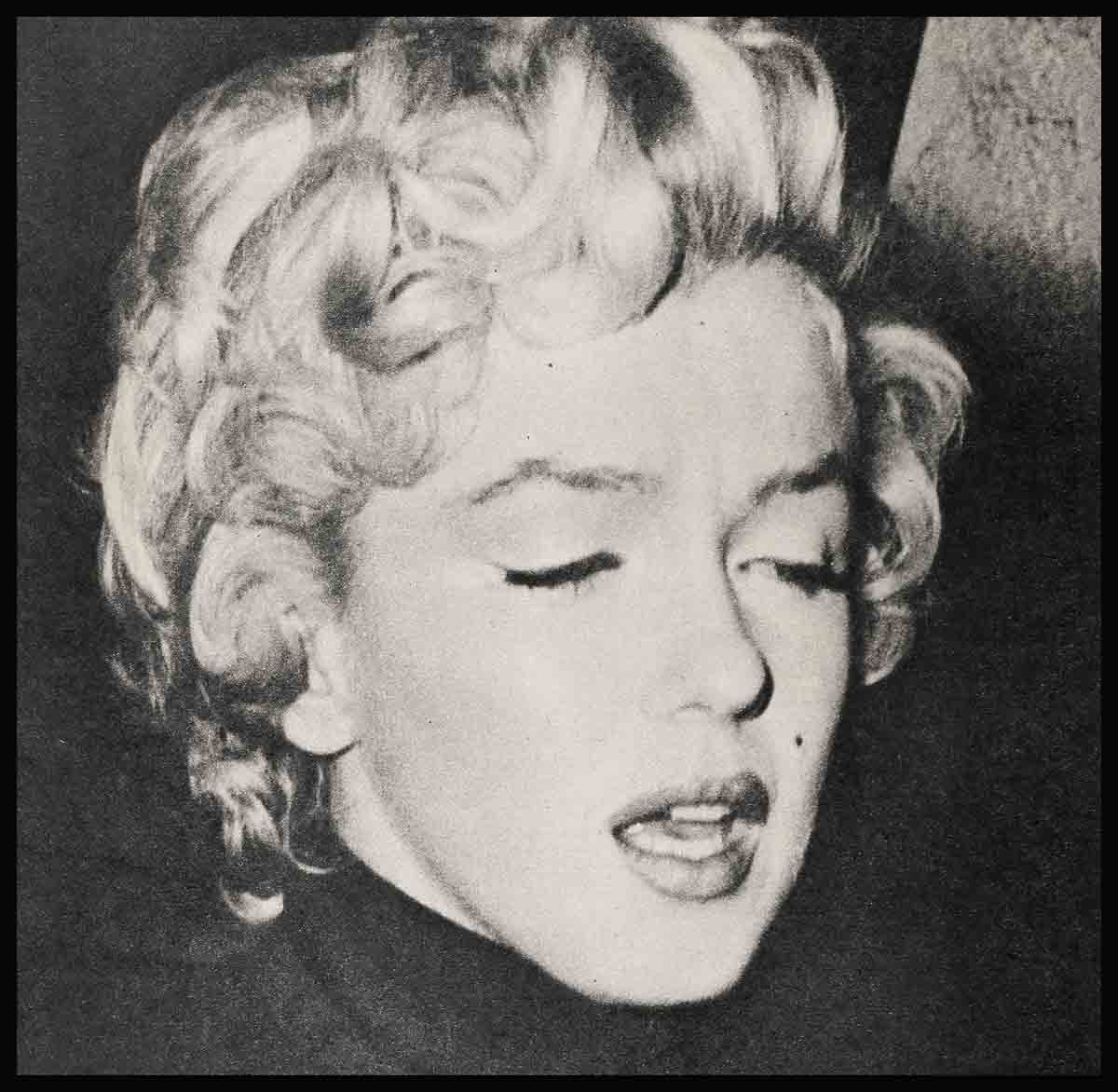
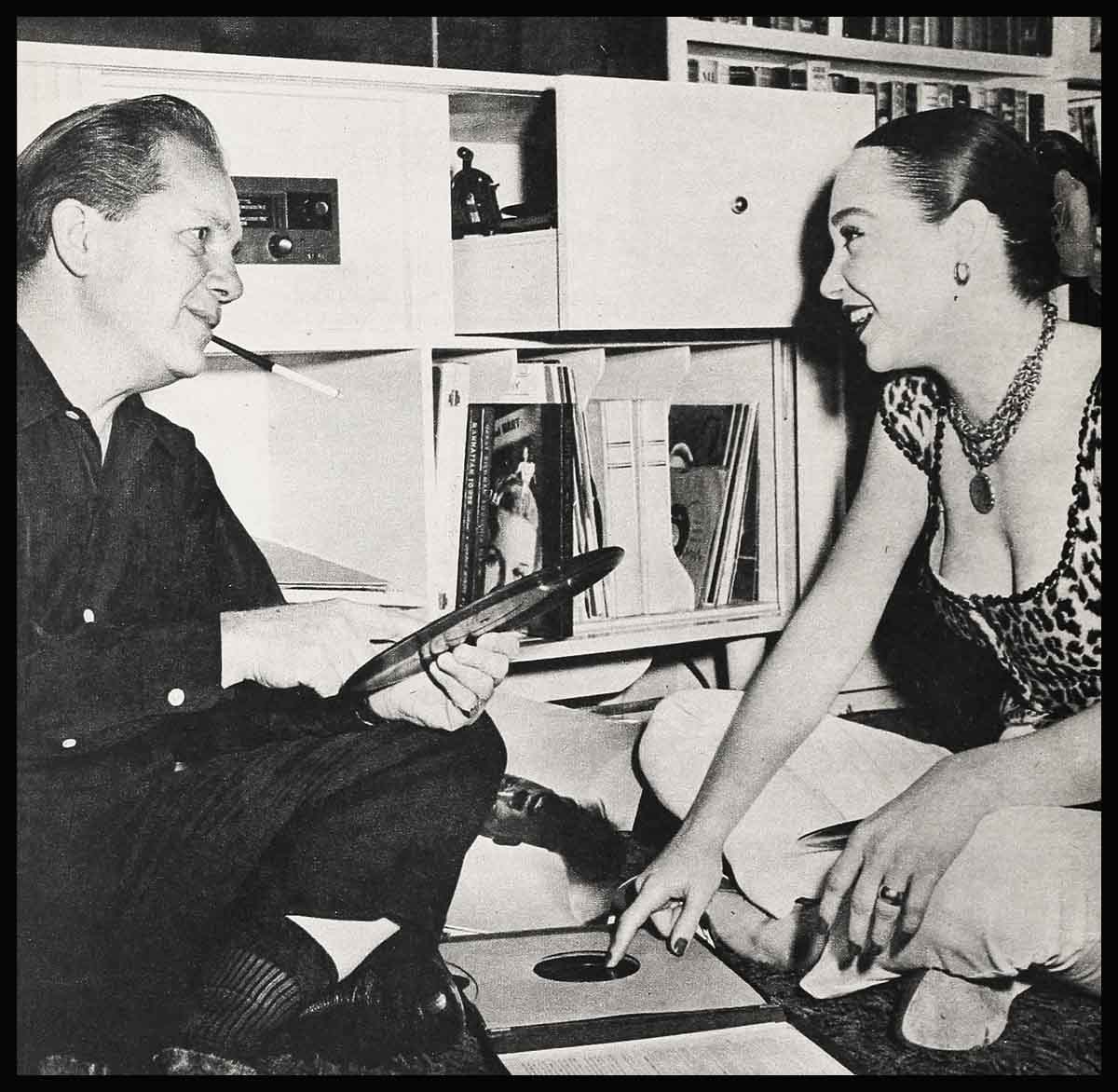
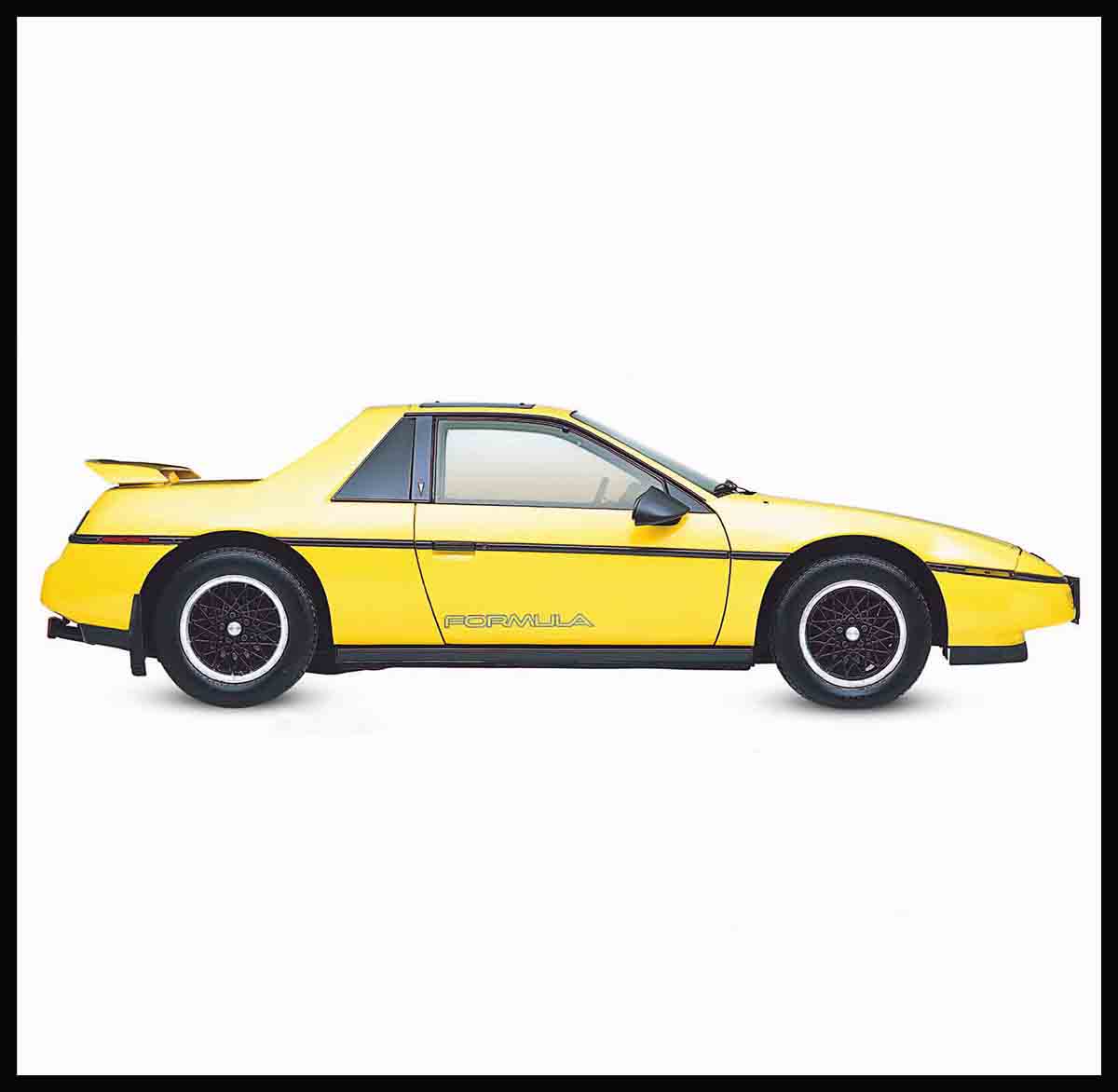
zoritoler imol
30 Temmuz 2023This site is my breathing in, very fantastic design and perfect articles.